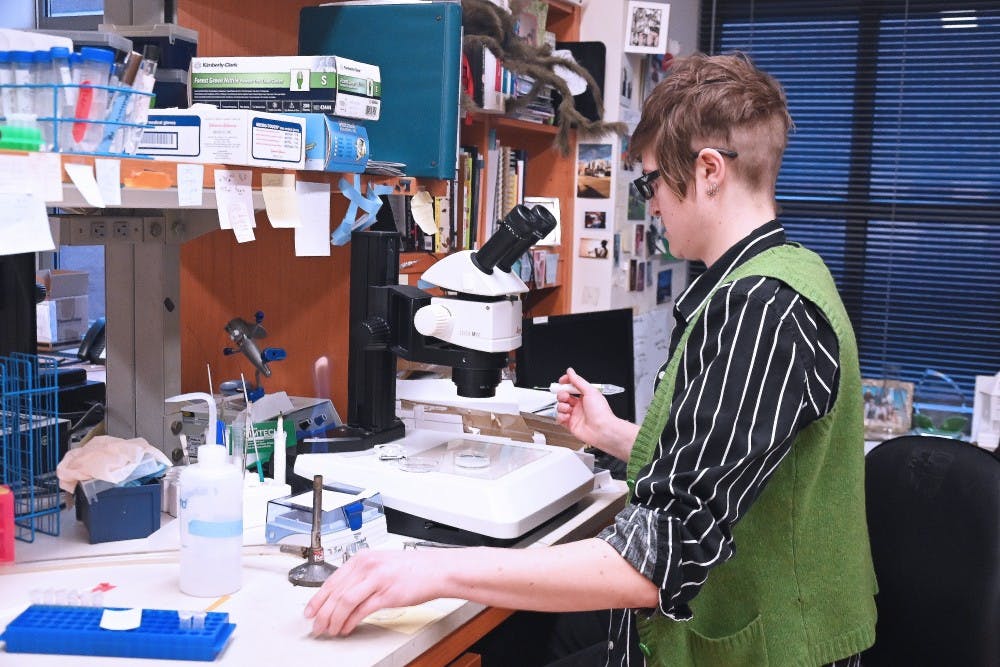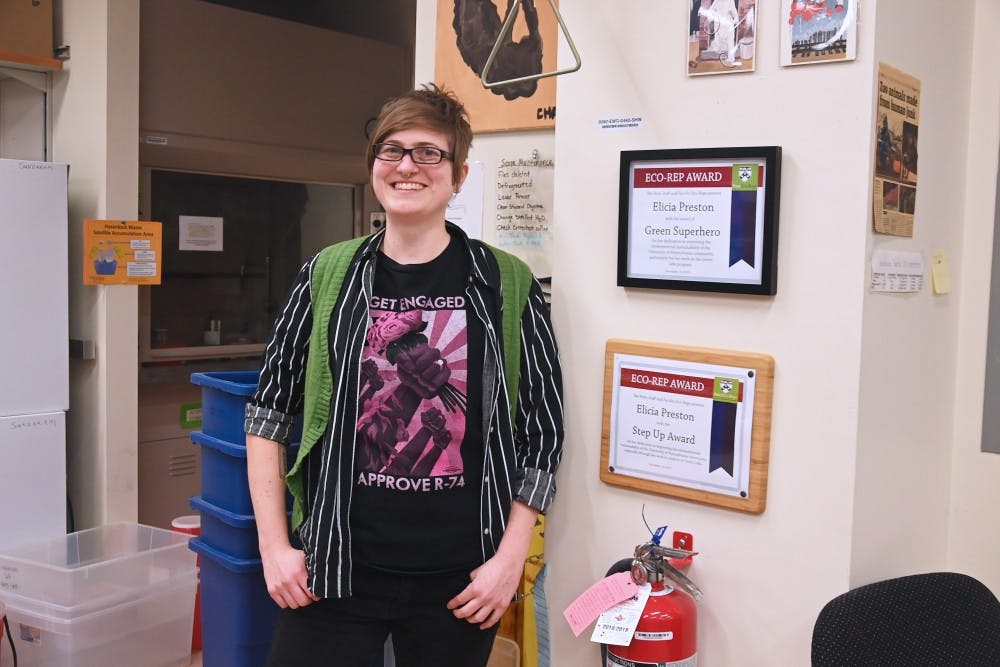
Elicia Preston, a research scientist and lab manager at Murray Lab in the Perelman School of Medicine, started the project which aims to reduce carbon emissions and promotes sustainability in Penn's laboratories.
Credit: Maria MuradThe Green Labs Working Group aims to reduce carbon emissions and promote sustainability in Penn's laboratories.
The project was created in 2015 by Elicia Preston, a research scientist and lab manager at Murray Lab in the Perelman School of Medicine. Green Labs, which is made up of researchers across campus, holds regular workshops to educate lab workers on ways they can cut down waste and energy use in research facilities. The group also hopes to begin offering laboratory audits, where researchers can request Green Labs staff to visit their facilities and suggest ways to promote sustainability.
Dan Garofalo, environmental sustainability director at Penn Sustainability, said laboratories are a key location for reducing emissions and waste: they consume 40 percent of the energy on campus, but occupy just 20 percent of the area.
He said, however, that reducing waste and energy in labs can be challenging.
“Labs have very specific needs,” Garofalo said, adding that research environments stress safety, accuracy, and sterility. Garofalo also said it can be difficult to get researchers invested in sustainability efforts because of their busy schedules.
Preston said the idea for the project came when she noticed the enormous waste created while they worked with live cultures and tissue in disposable petri dishes as a research scientist at Penn. Preston said as a result, they decided to replace the plastic dishes with glass ones in the lab they work in.
But replacing the disposable dishes was more complicated than they expected. Glass petri dishes cost 50 times more than regular ones. Once the reusable dishes were purchased, Preston also had to buy specialized washing racks and train laboratory staff to properly clean the new equipment. To cover costs, Preston applied for a Green Fund grant from Penn Sustainability in spring 2015, which provides funding to implement projects that promote sustainability.

One of the project's initiatives is eliminating the amount of waste produced by Penn's labs.
Preston said they then developed the Green Labs project into a broader initiative encompassing other interventions, such as installing new recycling signs and glove recycling boxes in laboratories and organizing regular meetings with Penn researchers to discuss sustainability efforts.
Garofalo and Preston also offered advice for researchers and people working in laboratory environments.
“Sometimes, making it safe is making it more sustainable,” Preston said, citing defrosting freezers and managing waste properly as easy ways to observe laboratory safety while cutting emissions. They added that sharing materials like chemicals and enzymes between laboratories can decrease waste, and regularly turning off equipment can reduce energy use.
Preston added that labs should make sustainability efforts a priority.
"Scientists should know better, and know about climate change and the impact of our actions," Preston said. "I kind of expect more from them.”
The Daily Pennsylvanian is an independent, student-run newspaper. Please consider making a donation to support the coverage that shapes the University. Your generosity ensures a future of strong journalism at Penn.
Donate







